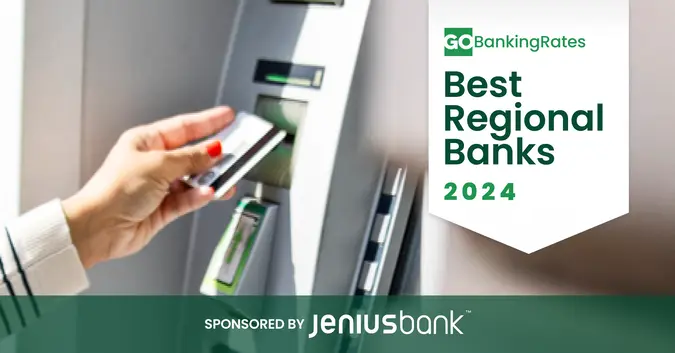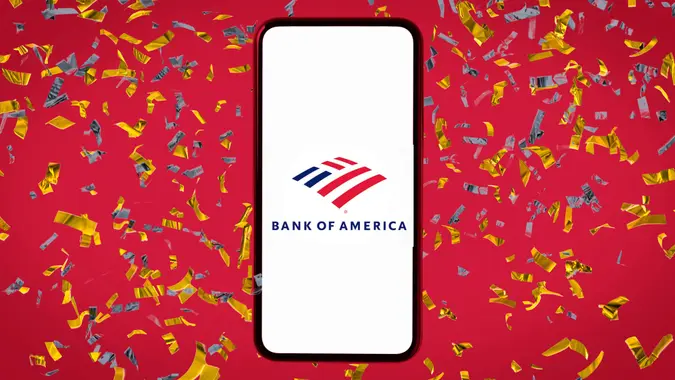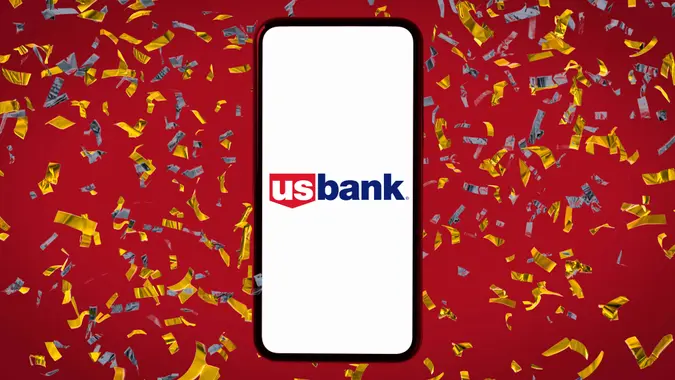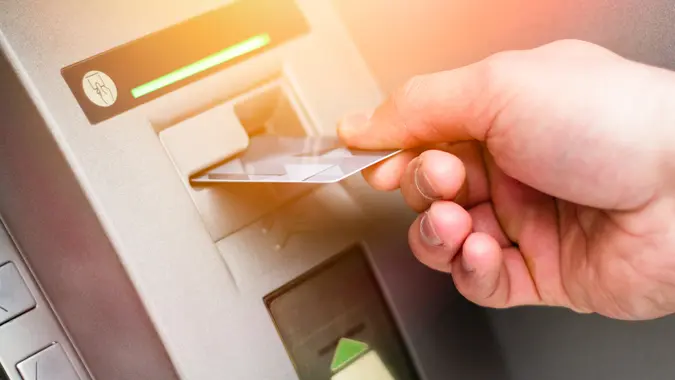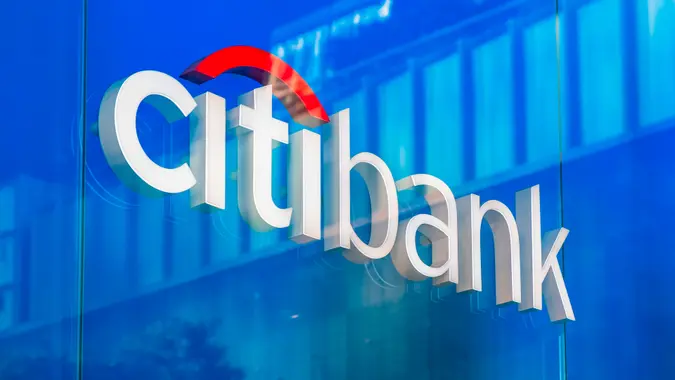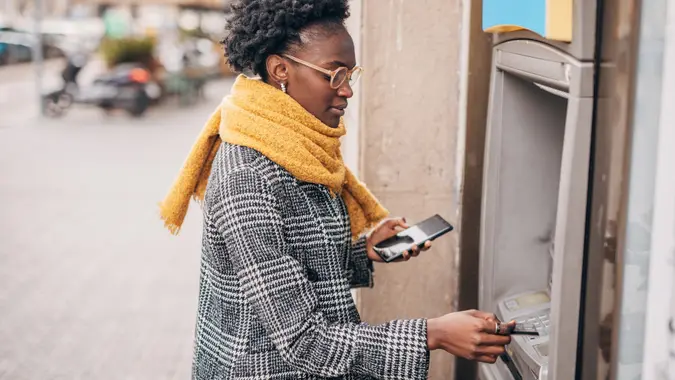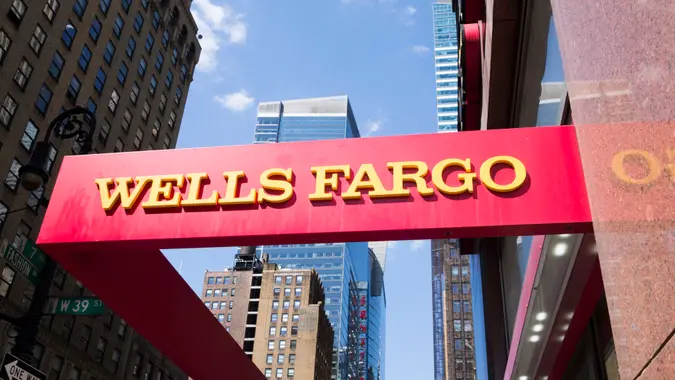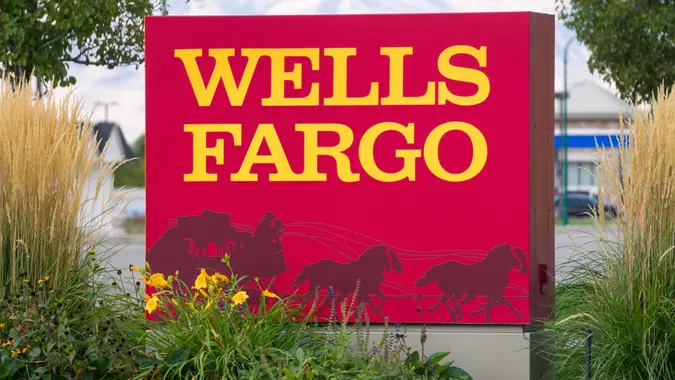5 Reasons You Shouldn’t Do All of Your Banking in One Place

Commitment to Our Readers
GOBankingRates' editorial team is committed to bringing you unbiased reviews and information. We use data-driven methodologies to evaluate financial products and services - our reviews and ratings are not influenced by advertisers. You can read more about our editorial guidelines and our products and services review methodology.

20 Years
Helping You Live Richer

Reviewed
by Experts

Trusted by
Millions of Readers
The idea of a one-stop shop when it comes to a bank has much appeal.
For starters, keeping all of your money at a single institution makes it easy to track, as you don’t have to chase down statements from different institutions, particularly at tax time. It also makes it easier to get a complete, easy-to-understand picture of your complete banking situation, potentially including even your investment performance.
But there are just as many reasons you might consider spreading out your banking accounts among different institutions, even if it may make things a bit more complicated on the surface. Here are just a few.
No One Bank Can Do Everything
Good banks tend to do at least a few things very well. Some may have low fees and high interest rates, others may have extensive branch systems and networks of fee-free ATMs, while still others may provide comprehensive estate planning services and advanced stock trading capabilities.
But no one bank can do everything well for all customers. In fact, many banks rely on the strengths of their best offerings to entice customers to stay with them, hoping they will use some more expensive services along the way.
But nothing requires you to keep all of your money at a single bank. As a consumer, you are free to pick and choose the best offerings of any bank you can find. While you may need one bank to process in-person cash deposits, that shouldn’t stop you from transferring those deposits to another bank with a no-fee, high-yielding savings account to earn money on that cash. By not limiting yourself to a single financial institution, it means you can shop around and pick the best of the best for all of your banking needs.
The ‘Right of Offset’ May Catch You
One relatively unknown right that banks have is the ability to offset your debts with your cash deposits. For example, if you take out a personal loan and find yourself unable to keep up with your payments, your bank may have the right to dip into your checking or savings accounts to pay off that debt. This is particularly true in the case of bankruptcy.
While no one plans on defaulting on a debt, if it happens to you, having your cash deposits at a different institution than your debt accounts may prevent you from finding yourself in this position.
Banks Can Fail
Although it’s extraordinarily rare, banks can and do fail. If you have all of your assets at a single bank, that puts you at risk of being in a tough financial situation. While accredited banks have FDIC insurance to protect your deposit accounts, it can take days or even longer to receive that deposit insurance payout.
Meanwhile, you won’t have any access to your funds to pay your bills, withdraw cash or maintain your automated payments. Keeping at least some of your money at a different institution can help keep you liquid in case of extreme disaster.
Risk of Theft Increases
Cybercrime is rising exponentially. As more and more banks get hacked, it becomes less and less prudent to keep your money at a single institution. With one fell swoop, an unscrupulous hacker could drain your financial accounts — a risk you won’t take if your money is scattered around at different banks.
While most banks have insurance against fraudulent activity in customer accounts, as with FDIC insurance, it may take days or even weeks to get your money back if you’re hacked. That could put you in a financial bind for a potentially extended period of time. The risk level of this hazard may be low, but the disruption to your financial life would be high.
You Can Garner More Sign-Up Bonuses and Rewards
Consumer banking is a very competitive industry. As customers can choose from literally thousands of banks simply from their computer screen or smartphone, many banks offer sign-up bonuses or other promotions to drum up new business.
For example, as of March 2023, Chase Bank is offering $200 to new customers opening a checking account and meeting qualifying criteria, while Bank of America is paying only $100 for the same.
While some of those terms may be hard to meet for some customers, many other banks offer lower bonuses with fewer restrictions. The point is that there’s no reason to stick with a single banking institution when there are lucrative bonus offers out there for the taking, particularly if you’re unhappy with the high fees, poor customer service or other drawbacks of your bank.
More From GOBankingRates
- The Best $20 You Can Spend at Dollar Tree, According to Superfans
- 10 Cars That Outlast the Average Vehicle
- This is One of the Best Ways to Boost Your Retirement Savings in 2024
- 7 Things You'll Be Happy You Downgraded in Retirement
 Written by
Written by  Edited by
Edited by 



